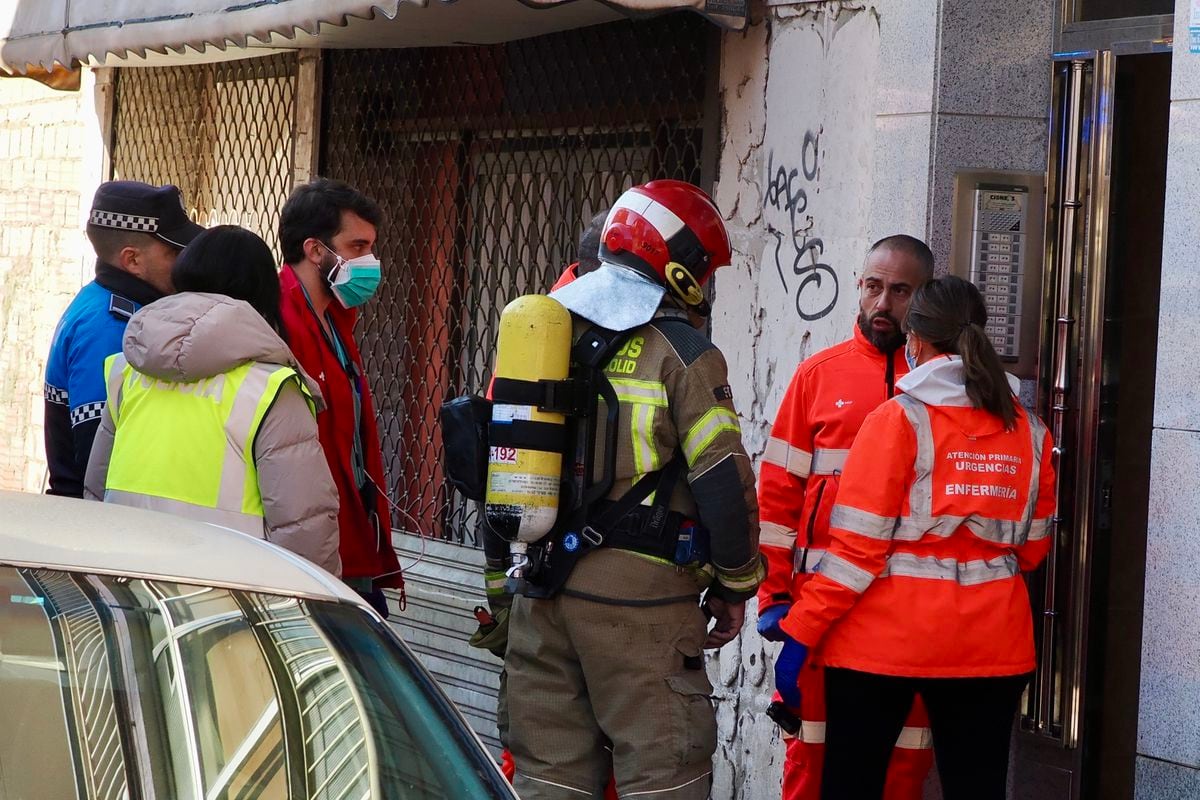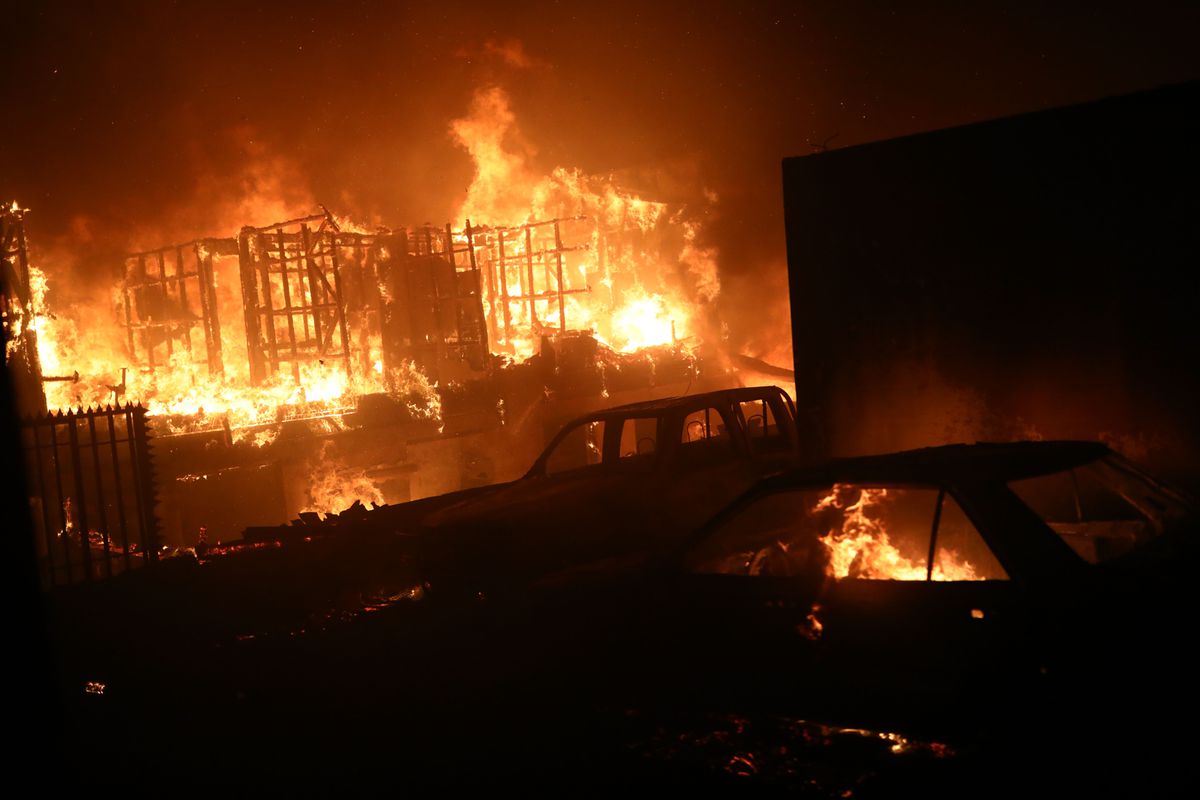Every year the theme of New Year's Eve fireworks excites the mind. Some warn of fine dust, injuries and scared animals. The others consider the worries to be exaggerated and argue that rockets and firecrackers were simply part of a successful New Year.
Who criticizes the private firecrackers?
The most prominent advocate of a fireworks ban for private individuals is the German Environmental Aid (DUH), which also supports petitions by citizens. "Fireworks generate tens of thousands of tons of garbage every year, cause fires and injuries and generate 5000 tons of fine dust," the association writes on its website. In July and October, he applied for bans on fireworks in the city centers in a total of 98 cities where the World Health Organization's limit value recommendations for particulate matter would not be met. The Federal Environment Agency also warns that on New Year's Eve "pollution with harmful fine dust increases explosively".
The fireworks industry is against it: The DUH and the Federal Environment Agency argued with dubious figures that were based only on models and estimates, according to the Association of the Pyrotechnic Industry. The fine dust released by fireworks is also water-soluble and is therefore easier for the body to remove from the lungs than soot particles from diesel engines.
Doctors and animal rights activists warn not only of fine dust pollution, but also of the risk of injury and noise pollution for animals.
Where is fireworks prohibited?
There are hardly any nationwide bans - only the North Sea coast is an exception: In a survey by the dpa news agency, the Föhr-Amrum office and the Sylt community of 53 cities and towns surveyed stated that rockets and firecrackers were not allowed.
In more than 20 cities , however, there are zones in which no firecrackers are allowed: among them is Hamburg's Jungfernstieg, the area around Cologne Cathedral, part of Munich city center and the party mile at the Brandenburg Gate, part of Alexanderplatz and Pallasstraße in Schöneberg in Berlin. Smaller cities such as Lüneburg, Passau and Timmendorfer Strand also imposed partial bans.
Why do cities and municipalities choose bans?
The most common reason for partial firework bans are safety concerns. In Munich , the restrictions are based on the risk assessment of the police: "The combination of close-up buildings, densely packed people, alcohol and pyrotechnics meant that you could no longer be sure that you would survive the New Year in the heart of Munich unscathed," he said Spokesman for the responsible district administration department with SPIEGEL. Rockets fired horizontally in crowds had not been uncommon in recent years.
In Cologne , the establishment of the firefree zone at the turn of the year 2016/2017 was the reaction to the events of the previous New Year's Eve, as a city spokeswoman said. That night there were not only attacks on women, but firecrackers and rockets were also fired crosswise, thereby "endangering people to a high degree". The stairs at the cathedral also only offer limited escape options.
Getty Images
Fireworks can be fired on the Rhine in Cologne - unlike at the cathedral
The festival mile at the Brandenburg Gate is a private event. A private firework on the festival site has always been prohibited by the organizers, said a spokesman for the Berlin administration : "With the crowds, it can not be done otherwise." The other two zones were determined this year on the basis of police law. "Policemen, firefighters and rescue workers were fired at with massive amounts of pyrotechnics in recent years," said the spokesman. Unfortunately, there were attacks on forces in the entire city area, but not to the same extent.
Basically, fireworks must not be ignited in the immediate vicinity of churches, hospitals, children's and old people's homes, and particularly fire-sensitive buildings or facilities. Bamberg justified a partial ban on fireworks by protecting the old town, which is a UNESCO World Heritage Site.
Air purity played a subordinate role for the cities surveyed by the dpa. Cities such as Hamburg, Ludwigshafen, Darmstadt or Chemnitz , all contacted by the DUH, saw no reason for a ban due to their particulate matter levels.
In Munich, however, the spokesman says it is forbidden to ignite New Year's Eve and firecrackers within the environmental zone of the Middle Ring. In this way, negative effects such as noise, air pollution and waste are to be reduced.
Legal barriers also stand in the way of complete bans. In order to enforce restrictions more easily, the explosives regulation has to be changed, demands the DUH.
What experiences do cities have that are already partially banned from fireworks?
Hanover , which for the first time in the past year banned the "carrying and burning of fireworks" in parts of the city center, reports on its homepage of "positive experiences". Therefore, the ban was pronounced again.
In Cologne, the need for the ban on the cathedral was understood by the population, said the spokeswoman. The problem has not shifted to other parts of the city either: "We have the impression that it has become less overall."
What are the consequences if the ban is ignored?
This is not regulated uniformly. In Munich, for example, violations can be punished with a fine of up to 1000 euros, in Amrum even up to 10,000 euros. In Berlin, on the other hand, the only threat is to "secure and destroy" the pyrotechnic articles.
How is retail dealing with the controversy about fireworks?
Recently, individual supermarkets made headlines with the announcement that they would no longer sell rockets and firecrackers. However, a trend cannot yet be read.
Upon request, the Rewe Group announced that the branches of Rewe, Penny and Toom will continue to offer a range of fireworks this year. The independent Rewe merchants, on the other hand, would be free to offer this. It is impossible to say how many actually did without the sale. The same was announced by the cooperative Edeka association.
The discounters Aldi and Lidl say they have fireworks in their range. However: With Hornbach, a complete hardware store chain has announced that it will stop selling fireworks in 2020. (Read more about "Which retailers still sell fireworks - and which ones do without")
Do people still want to fire?
There is no clear answer to this question. In a survey conducted by the Civey Institute last December, almost 60 percent of those questioned spoke out in favor of a general ban on fireworks in densely populated areas.
One hopes that the increased environmental awareness of the people will be reflected in a renunciation of fireworks, said the spokeswoman for the city of Cologne.
The Association of the Pyrotechnic Industry expects that New Year's Eve sales of fireworks will amount to around 133 million euros as in the previous year. Uwe Krüger from the Cologne Institute for Trade Research (IFH) assumes that the demand will remain high: "I do not think that consumers will spend less money on fireworks this year."


/cloudfront-eu-central-1.images.arcpublishing.com/prisa/NBJBHPJ45JRFJZJYW2OP4G4NWM.jpg)





